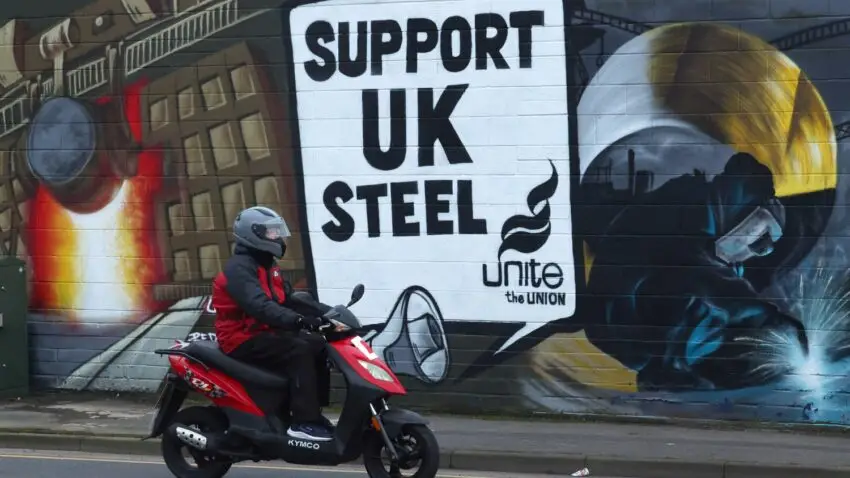British Steel is on the verge of receiving a £600 million state bailout. Labour is pushing forward to secure the future of the Scunthorpe plant amidst various challenges.
The bailout aims to address long-standing issues with British Steel’s Chinese owner, Jingye, and the green transition challenges facing the steel industry.
Long-standing Issues with Chinese Ownership
British Steel has faced significant financial challenges since its acquisition by Jingye in March 2020. The plant, which employs around 4,000 workers, has been in a precarious situation.
Jingye operates two blast furnaces at the Scunthorpe site. However, the company has made it clear that substantial public funding is required to transition to cleaner electric arc furnace (EAF) technology.
The Move Towards Cleaner Technology
The switch to EAF technology is expected to cost £1.25 billion and reduce carbon emissions by 75%.
Labour’s government is eager to facilitate this transition as part of broader green initiatives.
However, this shift has raised union concerns about potential job losses, with estimates suggesting up to 2,000 positions could be affected.
Union Concerns and Job Implications
The unions are worried about the lower labour demands of EAF production.
Some production could move to British Steel’s Teesside plant, where a new EAF facility is planned.
Labour must balance green pledges with the economic realities of the steel industry.
Investment and Transition Plans
Options include continuing blast furnace operations until the new EAFs are ready and potential investments in carbon capture and storage.
Recently, Jingye injected £100 million into British Steel, reassuring the government about the company’s financial stability.
Comparisons with Tata Steel’s Bailout
This potential rescue deal for British Steel is likely to follow a similar bailout for Tata Steel.
Tata’s transition to EAF technology at its Port Talbot site had an agreement with the previous Conservative government.
Labour aims to avoid industrial action and may face union pushback.
Labour’s Strategy for the Steel Sector
Labour is determined to safeguard jobs while transitioning to greener technologies.
The outcome of these negotiations will shape the future of British steel production.
Conclusion of Negotiations
The deal is crucial for the future of British Steel and the broader steel industry in the UK.
The £600 million bailout for British Steel is a significant step towards securing the future of the Scunthorpe plant. Labour’s determination to balance green initiatives with job security will play a crucial role in shaping the UK’s steel industry’s future.
Successful negotiations and the transition to cleaner technology will help modernise British Steel, ensuring it remains competitive. This bailout represents an essential milestone for the UK’s green transition and industrial stability.


